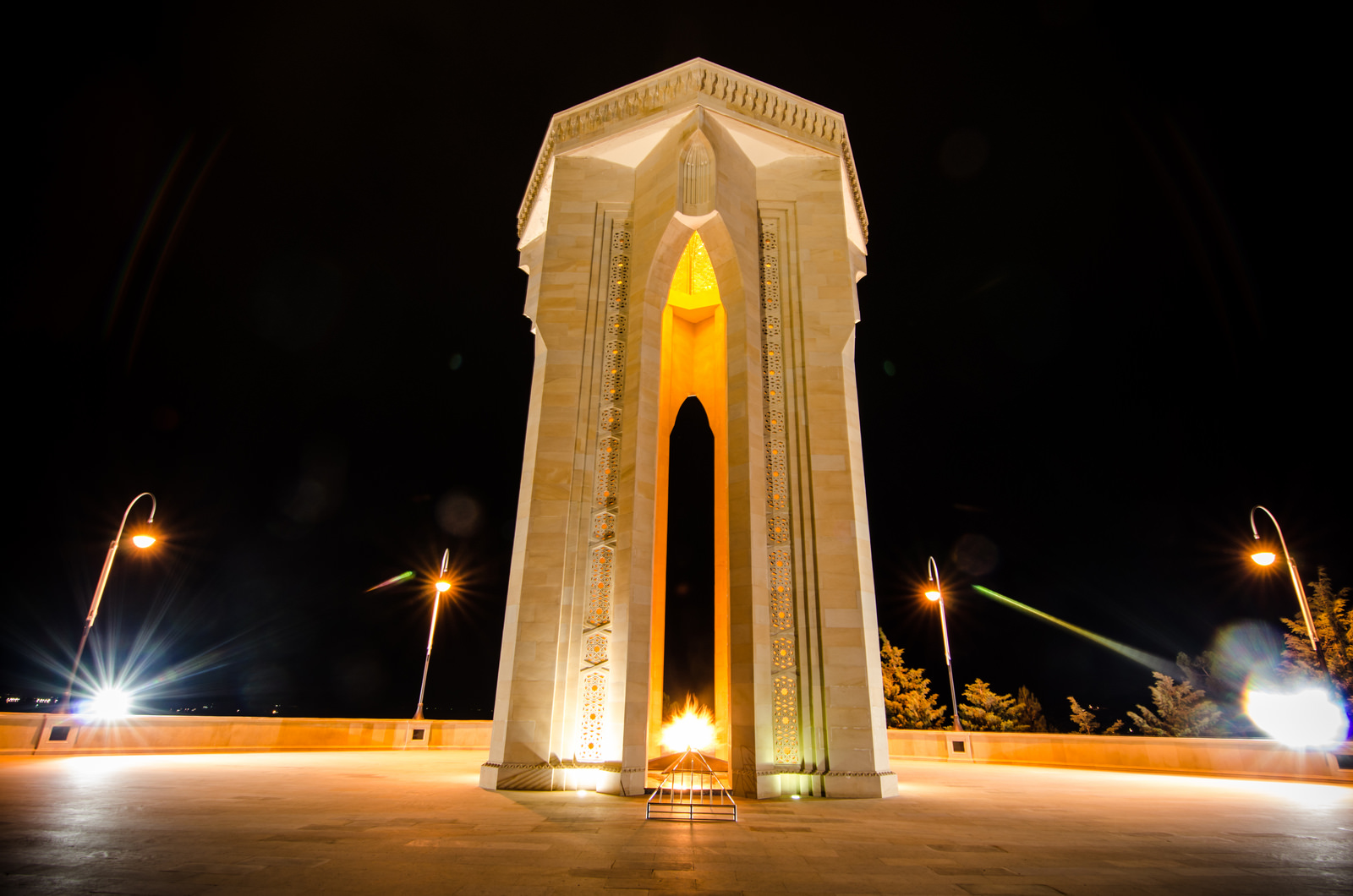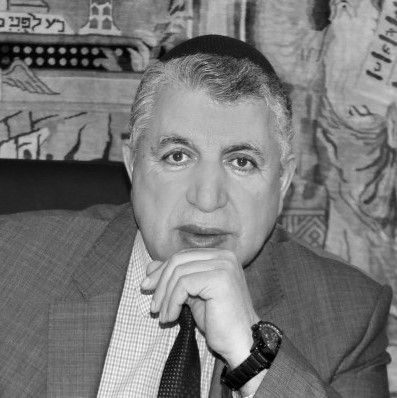 The Eternal Flame memorial in Baku, Azerbaijan
The Eternal Flame memorial in Baku, Azerbaijan We recently took in the news of chemical weapons used to murder children in Syria, an act few considered possible since a time 70 years ago, when over 1 million children were murdered by the Nazis. Our shock and outrage as a global community never fades, and our understanding of history seems to grow with the decades between then and now. But the sheer brutality with which these attacks have occurred reminds us of the true nature of evil and contempt for human life, as well as the capacity of intolerance to rearrange the human condition and spirit. The attack in Syria weighs on our minds, and is an important reason why we must never let the memory of a great tragedy as the Holocaust slip into the annuls of history past.
Yom Hashoah begins on the evening of April 23, 2017, a day to remember the 6 million Jews, the 5 million others, and the heroes that risked everything to save lives from the perpetrators and accessories to the Holocaust.
In my homeland of Azerbaijan, the remembrance of the Holocaust has always felt personal and close to home. Azerbaijan has always stood against hatred and fascism, and this was the case during the time of Nazism, as it is true today. History remembers Hitler’s vain attempt at capturing Azerbaijan’s capital city of Baku, which was key to his eventual defeat, when en route, his army endured Stalingrad. Azerbaijan was then, as it is today, a haven for Jews fleeing persecution in Europe and neighboring regions.
In 2016, the Baku International Center for Multiculturalism and Baku Slavic University organized a roundtable of high level scholars to discuss the implications of the Holocaust today, and to do so through the lens of our own national tragedy, the Khojaly Massacre. This massacre was committed against innocent Azerbaijani civilians, including hundreds of children, women and elderly in February 1992 by invading Armenian troops. The Human Rights Watch called it the “largest massacre” in the Armenia-Azerbaijan conflict and condemned the “unconscionable acts of violence against civilians” by the Armenian forces.
The said 2016 memorial in Baku for the 6 million Jews was mostly attended by Muslim students of the Baku Slavic University. And it is no coincidence. Holocaust studies are a part of the majority-Muslim Azerbaijan’s educational system, and with our strong Jewish population, deep ties to the State of Israel for 25 years, and our own experience during World War II, the Holocaust has, in many ways, left a permanent impression on Azerbaijan.
The Holocaust is one of many connections that tie Azerbaijan to the Jewish people. Jewish communities have also shown immense support to Azerbaijan for the endurance of our own tragedy. For the past several years, the Khojaly Massacre has been memorialized in Los Angeles, with Rabbis and synagogues leading the way in this compassionate, cross-cultural effort. Survivors that have participated in these remarkable memorials have noted the impact of feeling cared for by another, and how especially meaningful the memorialization of their tragedy was under the leadership of Jewish communities, to whom such tragedy is unfortunately very familiar. But it is precisely in that space of familiarity that remembering atrocities such as the Holocaust yields hope for a future free from the evils of hatred that made the Holocaust, and many other tragedies, possible.
Remembering the Holocaust is a truly universal undertaking. And yet, it should be looked at in context for a new generation of young people that have no connection to the experience of the past. With so few survivors left to tell their stories, with few children of the children of survivors feeling the direct connection to a page in history in a world driven by 15 minutes of fame relegates this important time to ancient history.
No matter where you come from, no matter your religion or culture, every human life is precious and deserving of freedom and dignity. If we can cross the barriers of difference to memorialize such a tragedy, we can surely cross it for many other reasons and on many more days.























 More news and opinions than at a Shabbat dinner, right in your inbox.
More news and opinions than at a Shabbat dinner, right in your inbox.